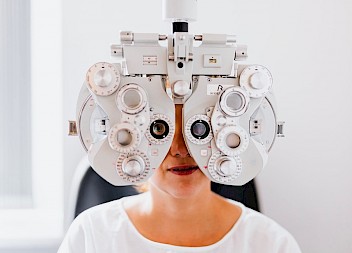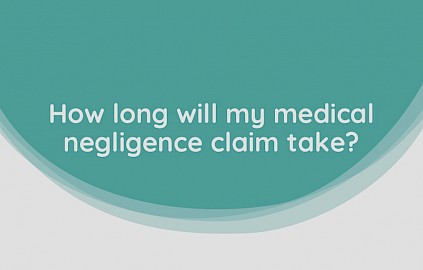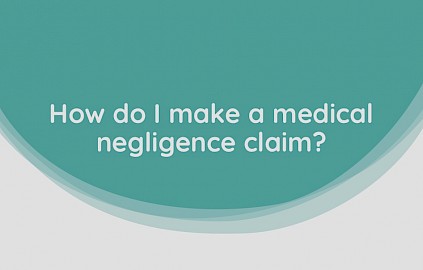Eye Surgery Claims
Eye surgery claims are another type of eyesight claim we can help with. Here are some eye surgery claims that can result in loss of vision:
- Incorrect placement of lens during cataract surgery causing uveitis, glaucoma, and loss of vision.
- Errors in performing YAG laser capsulotomy, resulting in glare.
- Errors in biometry resulting in refractive error.
- Delay in diagnosis of retinald detachment in vulnerable patient, resulting in loss of sight in one eye.
- Delay in diagnosis and treatment of orbital cellulitis due to bacterial infection, causing loss of vision.
- Surgical error during an eye surgery, causing damage to nerves or blood vessels, resulting in loss of vision.
- Failure to fully advise on risks and benefits of elective eye surgery, resulting loss of vision.
Eye Injury Claims
Any eye trauma, including a forceful blow to the eye or a penetrating or perforating injury, should be treated as an emergency. Eye trauma can cause complications such as retinal detachment, bleeding in the eye, damage to the optical nerve (glaucoma), ruptured globe (usually the sclera (white part) and cornea), and cataracts. A failure by an ED doctor to refer to an ophthalmologist for immediate assessment and surgical repair, if necessary, can lead to loss of vision and, in some cases, loss of the eye.
Complications from eye injury such as retinal detachment, glaucoma and cataracts may not be apparent for months. The patient should be kept under review and failure to do so can lead to loss of vision.
Loss of Vision Compensation
What is claimed for loss of eyesight?
Loss of eyesight compensation can be significant, depending on the extent of the injuries suffered.
Below is a summary of the range of loss of vision compensation that can be awarded. This information is a guide for the value of pain, suffering and loss of amenity (all known in legal terms as ‘General Damages’).
However, the value of a loss of sight claim is not only calculated by assessing the injuries, but also by looking at your past financial losses, and any future financial losses you will continue to suffer. For this reason, it is vital you have the best medical solicitor to fight on your behalf. Your claim should not be settled at an undervalue by inexperienced lawyers.
If you have suffered financial losses, as well as physical injury, then your claim may be worth a lot more than the figures below. We work hard to ensure our clients achieve the best possible outcome.
Here are some examples of damages you may be able to claim for due to loss of eyesight:
- Pain, suffering and loss of amenity.
- Psychological distress and suffering, including mental health challenges.
- Adaptations to your home to navigate rooms differently.
- Additional medical expenses, therapy expenses and care expenses (whether this involves a professional carer, family member or friend).
- Travel expenses (for example, to optometrist appointments due to loss of sight).
- Loss of income, including past and future financial losses.
- Time and expenses incurred learning Braille, how to use specialist equipment (such as screen readers) and/or how to work with a guide dog.
What is the amount of compensation for loss of eyesight?
The figures in the table below are based on tariffs laid down by the Judicial College Guidelines and are figures applicable as at November 2022.
| Loss of Sight Claim |
Compensation Value |
| Total blindness and deafness |
In the region of £403,990 |
| Total blindness |
In the region of £268,720 |
| Loss of sight in one eye with reduced vision in remaining eye, with risk of further deterioration of remaining eye |
£95,990 - £179,770 |
| Loss of sight in one eye with reduced vision in remaining eye |
£63,950 - £105,990 |
| Total loss of one eye |
£54,830 - £65,710 |
| Complete sight loss in one eye |
£49,270 - £54,830 |
| Serious but incomplete loss of vision in one eye |
£23,680 - £39,340 |
| Minor but permanent impairment of vision in one eye |
£9,110 - £20,980 |
| Minor eye injuries |
£3,950 - £8,730 |
| Transient eye injuries |
£2,200 - £3,950 |
Is blind in one eye considered legally blind?
In the UK, you cannot be registered as blind or severely sight impaired unless you have significant sight loss in your other eye. Regardless, you can certainly seek compensation for blindness in one eye due to medical negligence. This figure can range from about £9,110 to £65,710 (as at November 2022), depending on the severity of your injury and additional factors.
What is the time limit for loss of sight claims?
The time limit (also referred to as the ‘limitation period’) for a loss of sight claim is three years from the date of the negligent treatment or the date you discovered the negligent treatment. This is the same time limit for all medical negligence claims, and we always advise to begin your claim as early on as possible. There are some exceptions to this limitation period, and please don’t hesitate to contact us even if you’re concerned about the limitation period.. It is possible to ask the Court for permission to go ahead out of time in some circumstances.
Learn more about medical negligence time limits in our dedicated guide.
Contact Medical Solicitors Today
If you believe you have a loss of sight compensation claim, please do contact our friendly team of specialist lawyers. We offer free, no obligation legal advice throughout. Plus, we conduct most of our medical negligence claims under Conditional Fee Agreements, also known as ‘No Win, No Fee’ agreements.
Claims in medical negligence need the best specialist solicitors, who have a proven track record. To decide the full extent of the value of your claim, we will arrange to have your sight loss injuries assessed and to instruct appropriate medical experts. A good case can fail simply by instructing the wrong expert. We have an extensive register of medico-legal experts who will prove the injury you have suffered, how you have suffered it, how you have been affected and what the future holds for you.
Together, we can ensure that you get any further medical treatment that you need. We will help get you back on the road to recovery, as far as possible, with financial support for the past and the future. Please also read our comprehensive loss of eyesight support guide where we share practical steps for adapting to your new lifestyle and support groups you may want to connect with.









